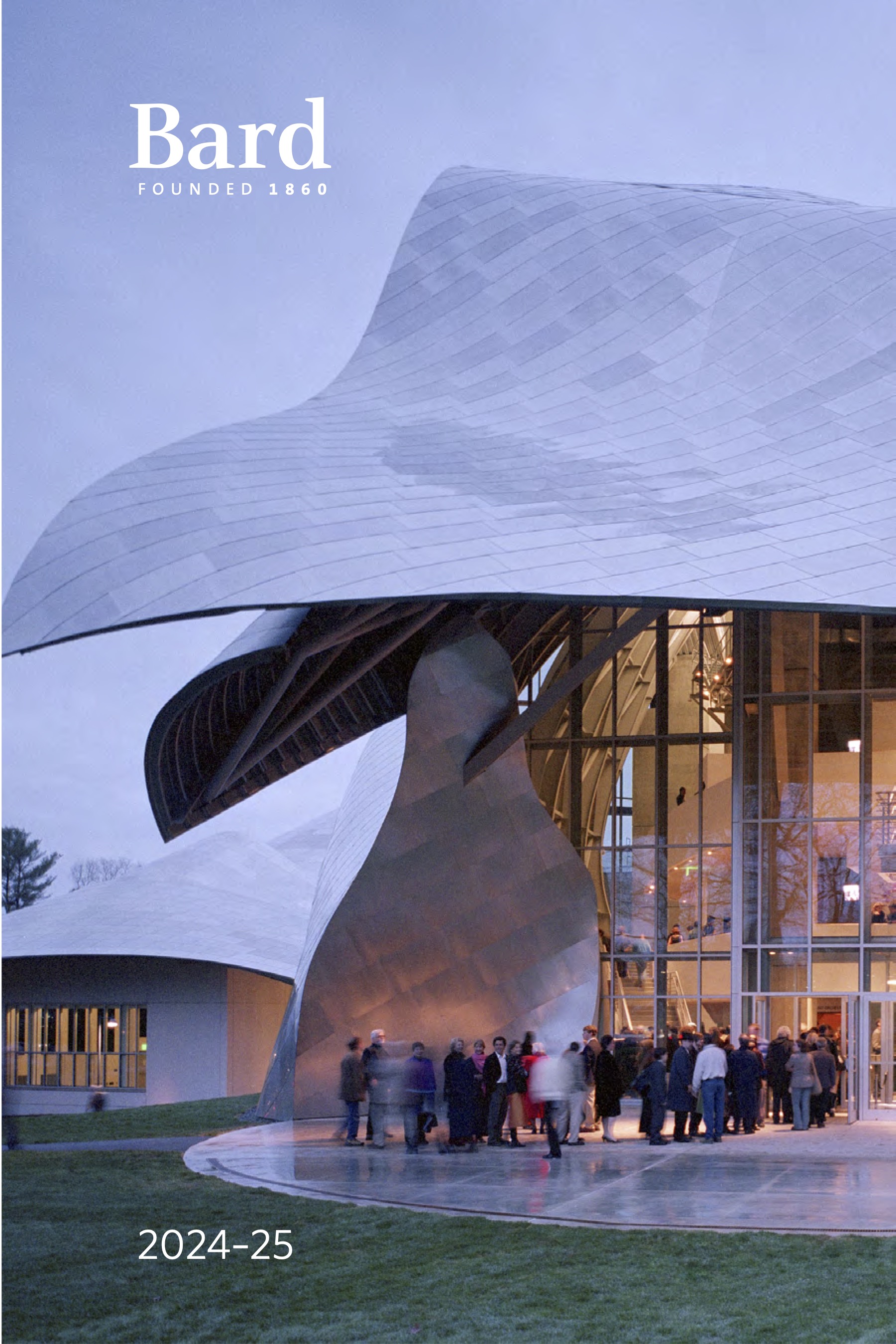
- Mission
- Acknowledging Bard's Origins
- History of Bard
- Learning at Bard
- Admission
- Academic Calendar
- Division of the Arts
- Division of Languages and Literature
- Division of Science, Mathematics, and Computing
- Division of Social Studies
- Interdivisional Programs and Concentrations
- The Bard Conservatory of Music
- Bard Abroad
- Additional Study Opportunities and Affiliated Institutes
- Civic Engagement
- Open Society University Network
- Campus Life and Facilities
- Graduate Programs
- Educational Outreach
- Levy Economics Institute of Bard College
- The Bard Center
- Finances
- Scholarships, Awards, and Prizes
- Faculty
- Honorary Degrees and Bard College Awards
- Boards and Administration of Bard College
- Bard College Contact Information
- Bard Campus Map and Travel Directions
Bard College Catalogue 2024–25
Medieval Studies
Faculty
Marisa Libbon (director), Nathanael Aschenbrenner, Katherine M. Boivin, Maria Sachiko Cecire, Jay Elliott, Valentina Grasso, Karen Sullivan, David Ungvary
Overview
The Medieval Studies concentration exposes students to civilizations from the sixth century to the 16th through a range of disciplines. A broad approach is particularly appropriate to the study of medieval culture because the national and disciplinary boundaries to which the university has become habituated since the 19th century did not exist during the Middle Ages. French was spoken in England, Provençal in Italy, Arabic in Spain, and Latin or Greek throughout Europe. Major political organizations such as the Catholic Church, Holy Roman Empire, and Caliphates were transregional by definition. Fields such as art, astronomy, history, literature, medicine, theology, and philosophy were not always considered distinct. People, ideas, and physical objects traveled through vast networks of trade, communication, and study. For these reasons, students are encouraged to explore medieval culture as inclusively as people of this time would have experienced it.
Areas of Study
Students specialize in one discipline related to medieval studies, but are expected to become familiar with a variety of fields within this area. Courses cover the history and culture of the Middle Ages from the British Isles and Scandinavia to the Byzantine and Islamic Empires and along the Silk Road to China. Traditionally, medieval has been defined as the period between the 500s and 1500s, centered on Western Europe. Students are invited to interrogate the historical assumptions that have shaped this definition of the medieval. They may also consider how the various “classicisms” of ancient Greece and Rome contributed to this period or how “medievalisms” of more recent centuries (such as the neo-Gothic architecture of fantasy and children’s literature) have shaped our perceptions of the medieval world. Students are encouraged to take advantage of opportunities to study medieval languages, including Old and Middle English, Old French, Old Provençal (Occitan), Medieval Latin, and Old Norse.
Requirements
Students moderate into Medieval Studies as well as a divisional program. They are expected to fulfill the requirements for both the divisional program and the concentration. In the Lower College, students take at least two semesters of a survey course in medieval studies (e.g., Art History 120, Romanesque and Gothic Art and Architecture; Art History 145, Byzantine Art and Architecture; Classics 236, The Fall of the Roman Empire; Literature 204A, Comparative Literature I, or Literature 250, English Literature I; and Philosophy 250, Medieval Philosophy in the Latin and Arabic Worlds).
In the Upper College, students turn to more specialized work, taking at least three additional courses in medieval studies. At least one of those must be a 300-level course. Before undertaking research for the Senior Project, students must demonstrate reading knowledge of at least one appropriate language, either medieval or modern. In their final year, students complete a Senior Project, which combines work in the disciplinary program and in Medieval Studies. At least two members of the Senior Project board must be affiliated with the Medieval Studies concentration.
Courses
In addition to the survey courses noted above, recent courses include Arthurian Literature, The Canterbury Tales, The Book before Print, Kings and Queens in European History and Literature, Life in the Medieval Church, Philosophies of the Islamic World, Medieval Art of the Mediterranean, Visual Culture of Medieval Death, Reading Medieval Latin, and Sufism.